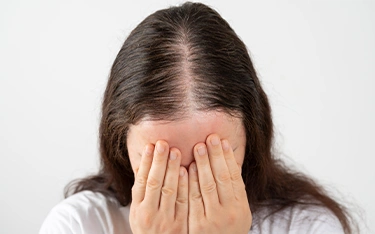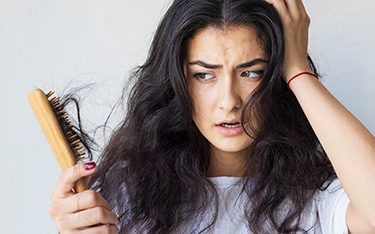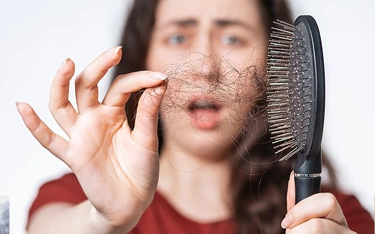FAQs
The primary hair loss causes/reasons include genetics, hormonal imbalances (especially DHT sensitivity), aging, stress, and nutritional deficiencies like low iron or vitamin D.
Yes! Vitamin D plays a crucial role in hair follicle health. A deficiency can lead to weakened hair growth, excessive shedding, and slower regrowth.
Not directly. However, postpartum hormonal shifts can cause temporary hair shedding, which usually resolves within months.
Yes, chronic stress increases cortisol levels, which can disrupt the hair growth cycle, leading to excessive hair thinning and loss.
Absolutely! Poor nutrition, iron deficiency, and lack of protein can weaken hair follicles, making hair more prone to thinning.











